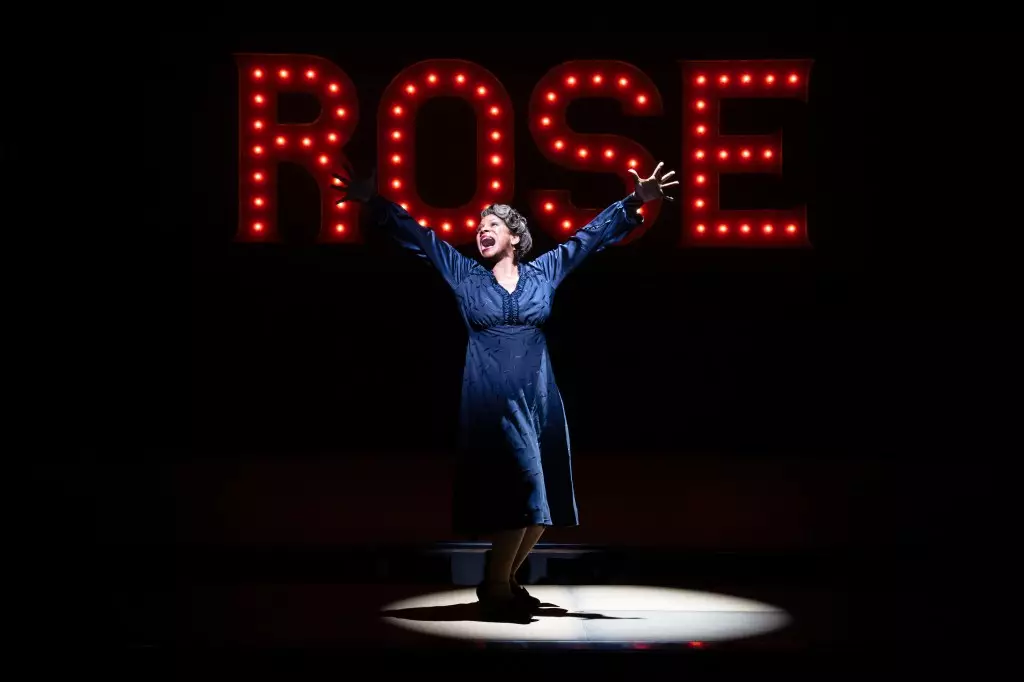Broadway’s holiday season brought an unexpected mix of triumph and turmoil this year, presenting a vivid illustration of the unpredictable nature of live theater. While many productions basked in the glow of record-breaking weeks, one notable revival faced an unusual setback that dimmed its festive spirit.
The week ending December 29 was incredibly fruitful for Broadway, with the cumulative box office gross reaching an impressive $55.8 million, marking a 26% increase from the preceding week and a 23% rise compared to the same period last year. In what has become a hallmark of the holiday season, theatergoers filled seats, with total attendance climbing to over 306,000—a figure that underscored the community’s robust appetite for live entertainment during this time.
Wicked achieved a historic milestone, exceeding $5 million in gross, thereby setting a new record for the highest-grossing week in Broadway history. This achievement is symbolic not only of the production’s enduring popularity but also reflects broader public enthusiasm for theater as a crucial festive outing. Numbers soared for other productions too, showcasing the diverse appeal of Broadway offerings ranging from family-friendly shows like Aladdin to critically acclaimed hits like MJ.
However, this bright tableau was overshadowed by the beleaguered revival of Gypsy, starring the illustrious Audra McDonald. The production confronted a severe crisis, canceling seven out of eight performances during one of the most lucrative weeks of the year. With a staggering loss of over $1.2 million, Gypsy’s struggles highlighted the fragility of live performances, particularly in times when illnesses can spread rapidly among cast and crew.
McDonald took to social media to address the situation, candidly discussing the unfortunate “nasty cold” circulating within the Broadway community. Although her plea for understanding and goodwill was heartfelt, the reality remained—attendance for the single show that went ahead was limited to standing room only, a stark contrast to the bustling full houses that characterized other productions. The truncated performances meant that understudies remained unprepared to step in effectively, creating a perfect storm that left fans disappointed and the show’s financial health jeopardized.
Despite Gypsy’s struggles, the holiday week demonstrated significant upward trends in ticket prices, with the average ticket costing $182.32—a notable increase of nearly $35 from the previous week. This surge suggests a willingness among audiences to invest more in their theater experiences, likely driven by the festive mood and the allure of returning to the grand theaters following previous pandemic restrictions. With a staggering 97% of seats occupied, Broadway is evidently thriving, fueled by the collective anticipation of holiday performances.
The push for additional performances also played a pivotal role in the robust numbers. Several productions added a ninth show into their schedule, contributing significantly to the overall box office revenues. The surge in attendance can be attributed not solely to exceptional shows but also to this strategic provision of increased viewing opportunities.
Broadway stands as a complex ecosystem where success stories abound amidst unexpected challenges. Productions like The Lion King and MJ amassed impressive grosses, while other plays like Six reminded viewers of their appeal and capacity for drawing audiences despite fierce competition. Audiences flocked to not only time-honored favorites but also newer offerings, such as Maybe Happy Ending, reflecting a rich tapestry of theatrical choices that continue to enrich the cultural landscape.
In contrast, Gypsy’s hiccup serves as a poignant reminder of the delicate balance between artistry and logistics in the theater world. Cancellations can occur despite advance preparations, swiftly altering the financial and emotional stakes involved. As post-pandemic recovery progresses, the industry continues to grapple with unforeseen challenges that can disrupt even the most celebrated productions.
As we move into the new year, Broadway must continue to adapt and allocate resources wisely to sustain this momentum. Listening to the audience’s interests and remaining agile to the unpredictable nature of performances will be pivotal in maintaining the festive spirit that thrives during this vibrant season. If theater has taught us anything, it is that every act of resilience can turn into a standing ovation—and on Broadway, the show must always go on.

